Rhinoplasty in Tunis
Search and Compare the Best Clinics and Doctors at the Lowest Prices for Rhinoplasty in Tunis
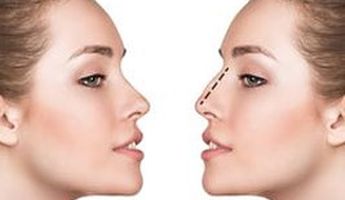
Find the best clinics for Rhinoplasty in Tunis
With Medijump you can browse 5 facilities offering Rhinoplasty procedures in Tunis. The cheapest price available is $1,489 in Tunis
Rhinoplasty in Tunisia
Price: $ 1,489
Rhinoplasty in Tunis
Price: $ 1,489
Rhinoplasty in Monastir
Price: $ 1,495
Poland offers the best prices Worldwide
Price: $ 101
From 37 verified reviews
Saoussen Saidani, 13 June 2020
My 12 year old daughter Lina has had surgery Pancreas tumorHeavy Operation which went very wellI thank all the staff of the Pasteur clinic for their hospitality and their hygiene ...I thank the doctors who attended the operation and in particular the surgeonAYADI Sofiene who accompanied us from the start for his professionalism as well as DR Walid Miraoui. The discovery of this tumor is done in a very short time a week to manage allThe support of Surgeon Ayadi Sofiene was really perfect as a parent we were reassured and above all in confidence.And especially I thank them for the moral support of My Daughter Lina who kept the smile until the end and who It is found in Total confidenceThank you so much for saving our childMr er Mrs Saidani
From 11 verified reviews
Toumi Mondher, 02 April 2019
The Department of Extraction and Billing at the Center of Imaging and Radiology, two patients, treated me with a reputation as a Tunisian clinic, and I bear the responsibility to speak this
Clinique Taoufik, located in Boulevard Mohamed Bouazizi, Tunis, Tunisia offers patients Rhinoplasty procedures among its total of 225 available procedures, across 24 different specialties. Currently, there's no pricing information for Rhinoplasty procedures at Clinique Taoufik, as all prices are available on request only, whilst the national average price is approximately ฿71,369. There are many specialists available at the Clinic, with 10 in total, and they are accredited by ISO 9001:2008
Clinic Apollon, located in Boulevard Mohamed Bouazizi, Tunis, Tunisia offers patients Rhinoplasty procedures among its total of 90 available procedures, across 1 different specialties. Currently, there's no pricing information for Rhinoplasty procedures at Clinic Apollon, as all prices are available on request only, whilst the national average price is approximately $1,983. All procedures and treatments are undertaken by just a small team of specialists, with 2 in total at the Clinic, and they are not accredited by any recognized accreditations institutes
Cosmeticare Travel, located in Boulevard Mohamed Bouazizi, Tunis, Tunisia offers patients Rhinoplasty procedures among its total of 34 available procedures, across 4 different specialties. Currently, there's no pricing information for Rhinoplasty procedures at Cosmeticare Travel, as all prices are available on request only, whilst the national average price is approximately $1,983. There is currently a lack of information available on the specialists practicing at the Hospital, and they are not accredited by any recognized accreditations institutes
Aesthetica Tour, located in Boulevard Mohamed Bouazizi, Tunis, Tunisia offers patients Rhinoplasty procedures among its total of 42 available procedures, across 9 different specialties. Currently, there's no pricing information for Rhinoplasty procedures at Aesthetica Tour, as all prices are available on request only, whilst the national average price is approximately $1,983. All procedures and treatments are undertaken by the lead specialist at the Hospital, and they are not accredited by any recognized accreditations institutes
Compare Before & After Photos of _procedure_photos.phpRhinoplasty
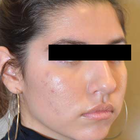
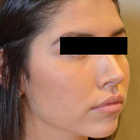
Half-side view
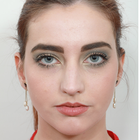
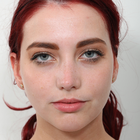
Front view
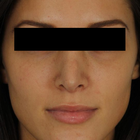
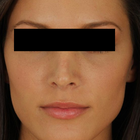
Front view
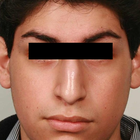
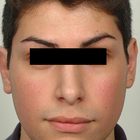
Front view
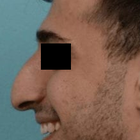
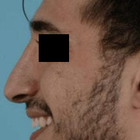
Full-side view
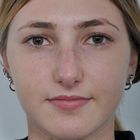
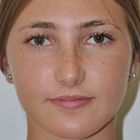
Front view
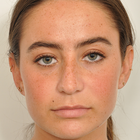
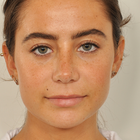
Front view
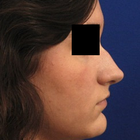
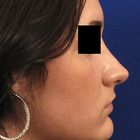
Full-side view
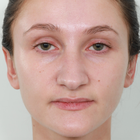
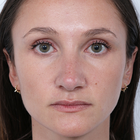
Front view
WHY US?
At Medijump, we're making medical easy. You can search, compare, discuss, and book your medical all in one place. We open the door to the best medical providers worldwide, saving you time and energy along the way, and it's all for FREE, no hidden fees, and no price markups guaranteed. So what are you waiting for?

Free

Best Price

Widest Selection

Risk-Free
What you need to know about Rhinoplasty in Tunis

Rhinoplasty, commonly known as the “nose job,” is plastic surgery to change the shape of the nose and to improve its function. This procedure can be performed for medical and cosmetic reasons. Those with breathing problems caused by a birth defect, deviated septum, sinusitis, or an injury to the nose, as well as those who are not happy with the appearance of their nose, can undergo rhinoplasty.
Rhinoplasty has a number of benefits. However, the most compelling reason for patients to have this surgery is to improve the appearance of their noses, which can boost their self-esteem significantly. Besides altering the form and size of your nose, the procedure can also strengthen the bridge, narrow the nostrils, and reshape the tip.
While anyone can undergo rhinoplasty, teenagers are advised to wait until their nose has reached its adult size.
What does a Rhinoplasty Procedure Involve?
During rhinoplasty, you will be given local or general anesthesia to make sure that you are comfortable and you don't feel any pain. Your surgeon might perform the procedure inside your nose or through an incision at the base of your nose.
Changing the shape of your nasal bones or cartilage can be done in several ways, depending on how much needs to be added or removed, available materials, and your nose’s structure.
If your nose needs to be augmented because you want to increase its size, prosthetic implants or cartilage from your nasal septum or ear is used. Once your surgeon is done altering the shape of your nose and correcting any defect, they will place the nose’s skin and tissue back, then close the incisions with stitches.
How Long Should I Stay in Tunis for a Rhinoplasty Procedure?
Depending on the complexity of the procedure and the type of anesthesia used, you may be able to leave the hospital on the same day or stay in the hospital for a day or two. The surgery itself takes around 1.5 to 3 hours to complete. Once you are discharged from the hospital, you should not leave Tunis right away. Instead, plan to stay about 10 to 14 days for initial recovery and follow-up checkups. A week following the surgery, your surgeon will remove your stitches.
What's the Recovery Time for Rhinoplasty Procedures in Tunis?
You generally need to wait at least 2 to 3 weeks until you can resume most of your normal activities. However, you should not perform any strenuous activities, such as intense exercise, for about 3 to 6 weeks. During the first few days after the surgery, you will experience some swelling around your eyes, but these will subside within 3 to 14 days. You will also have to wear a nasal splint for about a week following the surgery.
What sort of Aftercare is Required for Rhinoplasty Procedures in Tunis?
Since you may experience some discomfort, your surgeon will give you painkillers to ease any pain and discomfort. Make sure to take the pain medication as prescribed. For a couple of weeks following the surgery, you should not blow your nose, as well as laughing or talking too much. You also need to avoid any clothes that need to be pulled over your head and glasses on your nose for a few weeks. Always make sure to cover your nose while going out in the sun during your recovery period.
It's important that you avoid bumping or hitting your nose, and keep your nose safe and protected from anything that could misalign the bones and undo the results. To help you recover smoothly and quickly, eat healthy and nutritious food.
What's the Success Rate of Rhinoplasty Procedures in Tunis?
Rhinoplasty is considered one of the most complicated facial cosmetic surgeries. However, thanks to the advances in technology and surgeons’ extensive experience, the procedure has a very high success rate of between 85% and 90%.
Although rhinoplasty is generally safe, it does carry some potential risks of complications and side effects, including bleeding, infection, allergic reaction to the anesthesia, permanent numbness in your nose, difficulty breathing through the nose, an uneven-looking nose, discoloration, persisting pain, scarring, septal perforation, and a need for additional surgery.
Are there Alternatives to Rhinoplasty Procedures in Tunis?
If you are unable to undergo rhinoplasty, you can opt for its minimally invasive or noninvasive alternatives, such as filler injections or Botox. Both filler injections and Botox are noninvasive and require only a very short visit with your doctor. It works by injecting the substance into your nose to change its shape. Many people choose these methods because it is not as painful as rhinoplasty, requires little to no downtime, and no incision or stitches are involved.
If you want to improve your breathing, you may be recommended to use nasal strips. The nasal strip is a type of bandage with adhesive-embedded splints or plastic ribs that is applied across the bridge of the nose and the sides of the nostrils. It can keep the airway open, making breathing easier.
Whilst the information presented here has been accurately sourced and verified by a medical professional for its accuracy, it is still advised to consult with your doctor before pursuing a medical treatment at one of the listed medical providers
No Time?
Tell us what you're looking for and we'll reachout to the top clinics all at once
Enquire Now

Popular Procedures in Tunis
Prices Start From $404

Prices Start From $1,945

Prices Start From $192

Prices Start From $500

Recommended Medical Centers in Tunis for Rhinoplasty

- Interpreter services
- Translation service
- Religious facilities
- Medical records transfer
- Medical travel insurance
- Health insurance coordination
- TV in the room
- Safe in the room
- Phone in the room
- Private rooms for patients available

- Interpreter services
- Translation service
- Religious facilities
- Medical records transfer
- Medical travel insurance
- Health insurance coordination
- TV in the room
- Safe in the room
- Phone in the room
- Private rooms for patients available

- Interpreter services
- Translation service
- Religious facilities
- Medical records transfer
- Medical travel insurance
- Health insurance coordination
- TV in the room
- Safe in the room
- Phone in the room
- Private rooms for patients available

- Interpreter services
- Translation service
- Religious facilities
- Medical records transfer
- Medical travel insurance
- Health insurance coordination
- TV in the room
- Safe in the room
- Phone in the room
- Private rooms for patients available

- Interpreter services
- Translation service
- Religious facilities
- Medical records transfer
- Medical travel insurance
- Health insurance coordination
- TV in the room
- Safe in the room
- Phone in the room
- Private rooms for patients available

- Interpreter services
- Translation service
- Religious facilities
- Medical records transfer
- Medical travel insurance
- Health insurance coordination
- TV in the room
- Safe in the room
- Phone in the room
- Private rooms for patients available
Rhinoplasty in and around Tunis
About Tunis
Tunis is the capital and the largest city of Tunisia and is the center of government and administration as well as the center of commercial and cultural activities. It is divided into two parts, the old city known as Medina and the new city or Ville nouvelle. Even though it is located on the southern shores of the Mediterranean Sea, the city does not have many beaches. Still, it has managed to attract millions of tourists in 2018 thanks to its rich history displayed in numerous ancient buildings. These buildings have an enchanting blend of North African and French Architecture that will leave anyone in awe. Many tourists come to see the Roman ruins of Carthage or to stroll around and shop in the Medina.
Tunis is known to have a high standard of healthcare, which attracts an increasing number of medical tourists each year. Many of the medical tourists come from other African countries that have an inferior healthcare system. However, the city’s excellent reputation in cosmetic surgery and dental treatment appeal to many patients from Europe, the Middle East, and Asia. The private medical centers are armed with the best equipment and English speaking staff. The Tunisian Ministry of Health regulates cosmetic and plastic surgeons to ensure that there is a high standard. In addition to exceptional healthcare, Tunis also offer attractive prices for medical treatment and the cost of living.
Popular Areas in Tunis
Although it is the largest city in Tunisia, Tunis can feel like a compact city and can be explored on foot. The city has a number of famous attractions that are always packed with tourists.
- Carthage was founded in the 9th century BC and was once a powerful empire of the Mediterranean as well as home to a wonderful civilization before being destroyed by the Romans in the Third Punic War. It was then to become an important Christian center until the Islamic invaders destroyed it. Today, the ruins have become a UNESCO World Heritage Site that tourists can visit.
- The Medina in Tunis is one of the most remarkable medieval medinas in North Africa. There are over 700 monuments within the area, from mosques to madrassas to historical places. It is easy to get lost in the impressive maze-like alleyways, but tourists are encouraged to admire the Islamic architecture and art or learn more about the city’s history. Tourists can also shop in one of the souqs selling everything from shisha pipes to shoes or enjoy one of the cafes.
- Sidi Bou Saïd is a picturesque cliff-top village with cobbled streets, blue-and-white walls, and glimpses of pristine blue waters. It is probably one of the most beautiful places in Tunisia. The beautiful architecture is a blend of the Ottoman and the Andalusian. It is now a sleepy fishing village perfect for anyone who wants to get away from busy city life. The village has been a gateway for artists, bohemians, and pilgrimage for centuries.
- Bardo Museum is the second-largest museum in Africa and the main attraction of this museum is the ancient Roman mosaics recovered from Carthage. The museum also exhibits Greek statues, artifacts of the region’s Berber, and the accomplishments of the Islamic culture in the country. Other than the exhibitions, the building itself is decorated in impressive historic Islamic decorative arts.
Weather and Climate in Tunis
Tunis has a hot-summer Mediterranean climate meaning the city enjoys warm and sunny weather all year round. The summer can be hot and dry because rain is very rare and the summer usually lasts from June to August and the average temperature is around 25 °C but can get as high as 40 °C. July and August are the high tourist season, especially at the beach resorts. The city begins to get rain in autumn, often accompanied by a short thunderstorm. The winter is the wettest season of the year because it can rain every two or three days and the temperature can drop to 7 °C in the morning and 16 °C in the afternoon. The rainfall decreases in spring, and in March, the temperature ranges between 8 °C to 24 °C and the sunshine usually becomes dominant in May.
Getting Around in Tunis
Tunis-Carthage International Airport is the main airport in Tunisia and the airport connects Tunis with other cities in the country as well as the rest of the world as it serves flights to and from the Middle East, Africa, and major Europeans countries. It is the hub for Tunisair, Tunisair Express, and Nouvelair, but there are not many budget airlines operating flights from the airport. To get to the city center from the airport, tourists can opt for a taxi or bus. The bus is operated by the SNT bus line and departs every 30 minutes. It is very affordable with a single ticket costing less than 1 TND. There is also a more luxurious and expensive bus line known as the TUT bus and the bus departs every 15 minutes. If you want a more private mode of transportation use an airport taxis and they are usually metered.
Tourists have plenty of options to get around Tunis. There is a tram system in the city with inexpensive tickets, usually around .48 TND. However, be aware that it can be packed during the rush hours. Taxis are a good option to get around, the taxis are metered, and the base fare is around .4 TND but can be much more expensive if you hail one off the street.
Tourist Visas in Tunis
Nationals of 97 countries including Australia, China, Singapore, the United States, and Russia can enter and stay in Tunis for up to 90 days without a visa. Other nationalities not listed in the visa exemption agreement are advised to check at their nearest Tunisia embassy or consulate. The country provides an online visa application to simplify the process of obtaining a visa to enter the country.
Additional Information
- Local Currency: Tunisian dinar (TND) is the official currency of Tunisia. 1 USD will get you 2.61 TND.
- Money & Payments: ATMs are widespread in Tunis. Credit Cards, particularly MasterCard and Visa, are accepted in most top-end restaurants, hotels, and shops. Tipping is by no means mandatory but will be greatly appreciated.
- Local Language: Arabic is the official language and French is very common. English is not widely spoken except in tourist areas and hospitals.
- Local Culture and Religion: Most of the population follows Islam, but there are small groups of Christian and Jews.
- Public Holidays: The city celebrates major nationals and Islamic holidays such as Independence Day, Eid Al-Fitr, and Prophet Mohammed’s Birthday.
Popular Searches
- Plastic Surgery in Thailand
- Dental Implants in Thailand
- Hair Transplant in Thailand
- Breast Augmentation Thailand
- Gastric Sleeve in Thailand
- Gender Reassignment Surgery in Thailand
- Laser Hair Removal in Bangkok
- Botox in Bangkok
- Dermatology in Bangkok
- Breast Augmentation in Bangkok
- Coolsculpting in Bangkok
- Veneers in Turkey
- Hair Transplant in Turkey
- Rhinoplasty in Turkey
- Stem Cell Therapy in Mexico
- Rhinoplasty in Mexico
- Liposuction in Mexico
- Coolsculpting in Tijuana
- Rhinoplasty in Korea
- Scar Removal in Korea
- Gastric Sleeve in Turkey
- Bone Marrow Transplant in India
- Invisalign in Malaysia
- Plastic Surgery in the Dominican Republic
- Tummy Tuck in the Dominican Republic
- Plastic and Cosmetic Surgery in Poland
- Rhinoplasty in Poland
- Hair Implant in Poland
- Dental Implants in Poland
- IVF in Turkey





